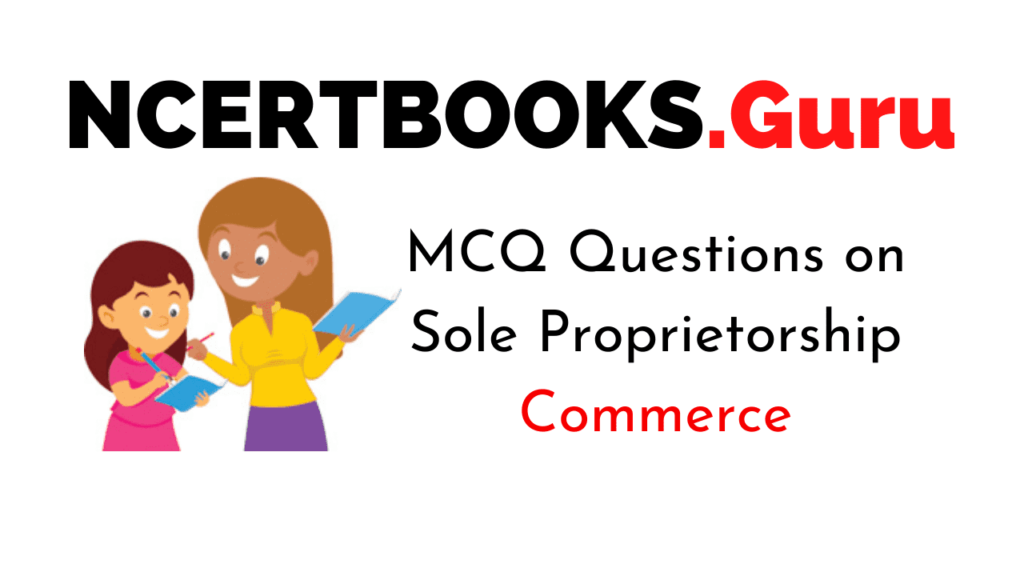Commerce is the study of life. Below, You will find a list of Commerce MCQ Questions as per the latest prescribed syllabus. Ace up your preparation with the Objective Questions available on Sole Proprietorship and enhance your subject knowledge. Understand the concept clearly by consistently practicing the Multiple Choice Questions and score well in your exams.
MCQ Questions on Sole Proprietorship
1.What is a Sole Proprietorship?
(a) Business owned by president
(b) Business owned by several companies
(c) Business owned by one person
(d) Business owned by a company
Answer
Answer: (c)
2. Which of the following is owned by a Single person
(a) Private Company
(b) Public Company
(c) Joint Hindu Family
(d) Sole proprietorship
Answer
Answer: (d)
3. Sole proprietorship business can be started by
(a) at least seven persons
(b) any one person
(c) at least two persons
(d) at least three persons
Answer
Answer: (b)
4. A sole proprietor has a limit in which of the following ability
(a) Managerial
(b) Owner
(c) Worker
(d) None of these
Answer
Answer: (a)
5. Sole Proprietorship is most suitable for
(a) Medium scale concerns
(b) Large scale concerns
(c) Small scale concerns
(d) None of the above
Answer
Answer: (c)
6. The life of sole proprietorship business is said to be
(a) Stable
(b) Very short life
(c) Unstable
(d) Long life
Answer
Answer: (c)
7. In which form of business there is no need to share profits.
(a) Company
(b) Sole proprietorship
(c) Partnership
(d) Joint Hindu family business
Answer
Answer: (b)
8. A Sole proprietor concern is free from regulation by.
(a) Indian Contract Act
(b) Government
(c) Private Indian
(d) Indian Law
Answer
Answer: (b)
9. The reason for the end of the sole proprietorship can be
(a) Insolvency
(b) Insanity
(c) Death
(d) All the above
Answer
Answer: (d)
10. Sole proprietorship business owner has
(a) Restricted Liability
(b) No Liability
(c) Unlimited Liability
(d) Limited Liability
Answer
Answer: (c)
